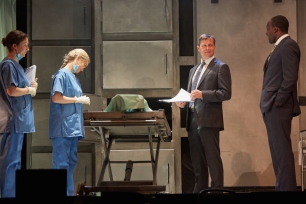
Dishoom photos restaurant edinburgh Inbox x Jen McClure 14:27 (5 minutes ago) to cat.thomson Hi Cat Sorry for the delay in getting back to you. Here is the link to a dropbox folder with some interior shots of dishoom without any people. I’m afraid we don’t have an exterior shot. If you need any plates of dishes or anything else, please let me know.
https://www.dropbox.com/sh/1xmrjqmdfemy65j/AACbmXGpeNQFcnxWwm27tajxa?dl=0 Many thanks
15/04/17
St Andrew Square, Edinburgh
It’s Saturday afternoon and Dishoom is buzzing. We’ve heard good things about this place, located in a former department store warehouse, and the only way we can manage to book a table for four people is by agreeing to eat late afternoon. When we arrive, the place is still packed with punters enjoying the tail end of a long lunch, so we’re issued with a pager and sent down to the basement bar. No sooner have our drinks arrived than the pager flashes, and we’re escorted up to the top floor, where we’re given a superbly located table overlooking St Andrew Square. (I tell one of our guests it’s because he’s been mistaken for Bill Nighy, for whom he’s a dead ringer.)
The ambience at Dishoom is distinctly colonial (it’s interesting to note that they offer Bombay street food, rather than Mumbai). It’s all ceiling fans, pot plants and vintage daguerreotype prints. A note on the menu informs us that the restaurant is dedicated to Scottish botanist Sir Patrick Geddes (1854 -1932), who visited Bombay in 1915 – which explains why we keep spotting vintage display cases dotted around the place. I’ll be honest and say that I’ve never heard of Sir Patrick, but hey, it’s a nice touch, and at least he’s a real person. (I googled him to be sure!)
With nearly every table packed to the limit, there’s an atmosphere of happy chaos here, though, as it turns out, the service is anything but chaotic. The staff are clearly highly trained and, it would seem, chosen for their infectious affability. Take our waitress, Masa, for instance. She’s delightful, full of advice and information about the food and kind enough to laugh heartily at my terrible jokes. She tells us that most diners like to order a couple of courses apiece and then everybody shares what’s on the table. This sounds like good advice, so we put together our order and settle down to wait. I tell myself that, given the busy dining area and the complexity of the order, this could take some time but, on the contrary, everything arrives promptly and exactly as ordered. Plates are arranged on a multi-tiered trivet, rather like an afternoon tea, so it’s easy for everyone to dig in – which, encouraged by the wonderful aromas emanating from the combined dishes, we’re all more than happy to do.
The food is extraordinarily good – the dishes include Murgh Malai – chicken thigh meat marinated overnight in garlic, ginger and coriander – and a delightfully succulent Chicken Tikka. There are Spicy Lamb Chops, which are just falling off the bone – and Masala Prawns, lightly charred and wonderfully chewy. We also enjoy some spectacular side dishes: Bhel, a bowl of puffed rice, Bombay mix and fresh pomegranate; some superb Vegetable Samosas, light, crispy with not a hint of greasiness; and, for me the star of the show, a Chicken Biriani, cooked in a sealed clay pot with cranberries. Oh, and lest I forget, there are some of the best Nan Breads I’ve ever eaten: light, crispy and (lovely touch this) you can even order them with or without butter. As we eat, all four of us are of the same frame of mind – there’s not a thing here that we don’t think is perfectly cooked and presented. What’s more, this approach to cuisine is unlike any other Indian restaurant I’ve visited in the UK.
We persuade ourselves that we’ll have a look at the pudding menu, and we order a couple of things just to see what they’re like. Susan and I opt for a Kulfi On A Stick – a delightfully simple idea: an ice lolly standing on end in a glass tumbler, the rich creamy flavour the perfect way to cool down the gullet. Susan has the pistachio flavour and I go for the mango. Our companions both order the Kala Khatta Gola Ice – ice flakes steeped in kokum fruit syrup, blueberries, chilli, lime and salt. I sample a taste and it is indeed, quite delicious and, once again, completely new to me.
You might expect an extensive repast like this to cost big money but, despite the fact that we also consume a full bottle of Prosecco and a couple of pints of Kingfisher lager, the bill comes in at around £40 a head – and that includes an (optional) 12% service charge. Little wonder that Dishoom is proving so popular. There are already four branches in London – this is the first to step outside the English capital – but I fully expect to see more of these establishments in the near future.
Would we go again? Oh yes, we would. If you’re looking for a fresh approach to Indian cuisine, get yourselves down to St Andrew’s Square with all haste… and tell them we sent you.
5 stars
Philip Caveney




















